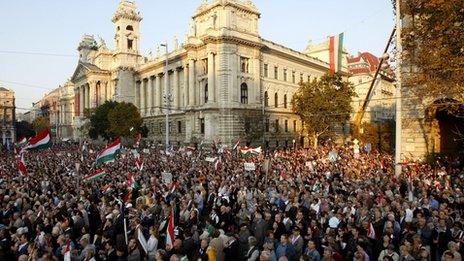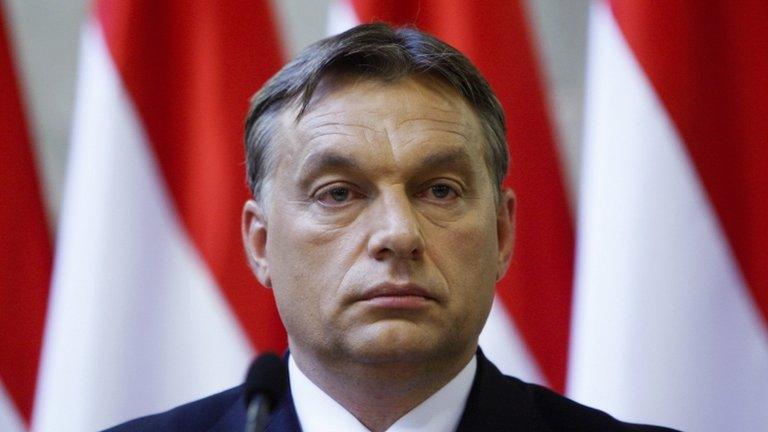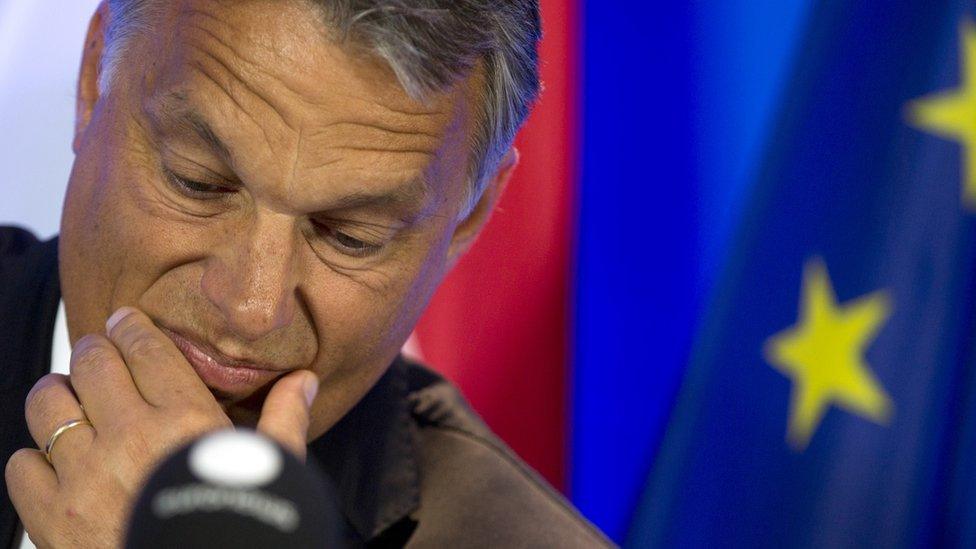Mass rallies mark 1956 Hungary uprising
- Published

Thousands of government supporters gathered outside parliament in Budapest
Large pro and anti-government rallies have taken place in Budapest to mark the anniversary of the failed 1956 revolution against Soviet rule.
Up to 150,000 people gathered across the Hungarian capital, state news agency MTI reported.
Prime Minister Viktor Orban gave a fiery speech, attacking the EU for interfering in national affairs.
Meanwhile ex-Hungarian leader Gordon Bajnai announced a new alliance against the conservative Fidesz government.
Mr Bajnai briefly headed a Socialist-backed cabinet of technocrats but was voted out of power in 2010 when the Fidesz party took over.
'Tool for corruption'
Speaking in front of several thousand people, Mr Bajnai said his new centrist alliance, called Together 2014, aimed to unseat Mr Orban at the next elections.
"The year 2014 can bring a change of fortune," he said.
"This government has broken, systematically, vertebra by vertebra, the backbone of Hungarian democracy. The state has become a tool for corruption."
Barely a kilometre away, Mr Orban told supporters gathered outside parliament that he would not allow "outsiders" like the EU to dictate national interests.
"We accept the rules of European cooperation that apply to all but we cannot accept that others should tell us what we can and cannot do in our own country," Mr Orban said in a speech broadcast on national television.
Mr Orban had previously compared the EU to "Soviet overlords".
Battling recession and high unemployment, the Fidesz government has raised taxes on banks and big business, defying criticism from the EU.
In September, Mr Orban rejected as unacceptable the conditions attached by the International Monetary Fund to a new 15bn-euro (£12bn; $19bn) loan.
The 56th anniversary of the Hungary revolution provided the backdrop for the political rallies.
Following World War II, the country found itself under communist rule. An uprising against Soviet domination in 1956 was crushed by Red Army forces but Hungary did later become the first Eastern European country to gain some economic freedom.
- Published6 September 2012

- Published4 September 2015
